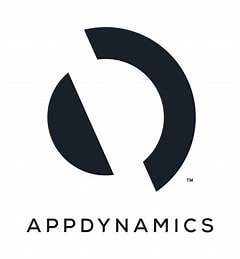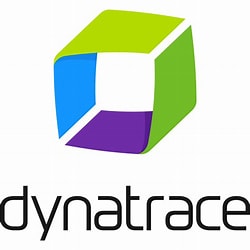
Red Hat OpenShift is an enterprise-grade Kubernetes-based platform designed for building, deploying, and managing containerized applications across on-premises, hybrid, and multi-cloud environments. OpenShift simplifies container orchestration with developer-friendly tools, enterprise-ready security, and built-in CI/CD pipelines, making it an ideal platform for organizations looking to accelerate their cloud-native and DevOps initiatives.
With its robust features, OpenShift empowers IT teams and developers to focus on application development and delivery while the platform manages the complexity of underlying infrastructure.
Kubernetes-Based Container Orchestration
Automates the deployment, scaling, and management of containerized applications with Kubernetes at its core.
Provides out-of-the-box enterprise-grade capabilities, including integrated logging, monitoring, and networking.
Hybrid and Multi-Cloud Support
Run applications seamlessly across on-premises, private, public, and hybrid cloud environments.
Ensure portability and flexibility in deploying workloads across multiple platforms.
Integrated CI/CD Pipelines
Accelerate development cycles with built-in CI/CD tools for automating application build, test, and deployment workflows.
Foster collaboration between development and operations teams with DevOps-friendly capabilities.
Developer-Centric Tools
Empower developers with an intuitive interface, IDE integrations, and support for popular programming languages.
Provide developer self-service capabilities, reducing dependency on IT teams for provisioning and scaling resources.
Enterprise-Grade Security
Protect workloads with built-in security features, including role-based access control (RBAC), network policies, and encryption.
Ensure compliance with industry standards and organizational policies.
Scalability and High Availability
Scale applications dynamically to meet fluctuating demand without impacting performance or reliability.
Achieve high availability with automated failover and recovery mechanisms.
Container Registry
Manage, store, and distribute container images securely with an integrated container registry.
Monitoring and Logging
Gain visibility into cluster health, application performance, and resource utilization with integrated tools.
Use advanced logging and monitoring features to troubleshoot and optimize workloads effectively.
OpenShift Service Mesh
Simplify communication between microservices with built-in service mesh capabilities.
Enable traffic control, policy enforcement, and observability for distributed applications.
Cloud-Native Development
Foster the development of microservices, serverless architectures, and other cloud-native applications.
Containerized Application Deployment
Simplify the management and scaling of containerized workloads for enterprise applications.
Hybrid Cloud Implementations
Enable seamless deployment of applications across on-premises and cloud environments.
Microservices Architecture
Build and manage microservices with service mesh, integrated monitoring, and CI/CD pipelines.
DevOps Automation
Accelerate development and deployment processes with built-in DevOps tools.
Cloud-Native Application Development
Design and deliver modern cloud-native applications with developer-friendly features.
Multi-Tenant Environments
Manage and isolate workloads securely in shared infrastructure environments.
Enhanced Efficiency: Automate container orchestration and application lifecycle management with Kubernetes.
Scalability: Seamlessly scale applications to meet dynamic business demands.
Portability: Deploy applications consistently across hybrid and multi-cloud environments.
Developer Empowerment: Enable faster development cycles with self-service provisioning and integrated CI/CD pipelines.
Enterprise Security: Protect workloads with robust security features and ensure compliance with regulatory standards.
Cost Savings: Reduce infrastructure costs by optimizing resource utilization and automating management tasks.
Developers: To accelerate application development and testing with built-in tools and self-service capabilities.
IT Operations Teams: For managing containerized environments efficiently across hybrid and multi-cloud setups.
Enterprises: Looking to modernize legacy applications and adopt cloud-native architectures.
DevOps Teams: For integrating development and operations workflows seamlessly.
Cloud Architects: To design and deploy scalable, high-performance applications.
Optimize Red Hat OpenShift with AiDOOS Virtual Delivery Center
The AiDOOS Virtual Delivery Center offers specialized services to help organizations implement and maximize Red Hat OpenShift’s capabilities. From configuration to application modernization, our experts ensure that OpenShift delivers exceptional value for your containerized workloads and DevOps practices.
Implementation and Setup
Configure OpenShift clusters for on-premises, hybrid, and multi-cloud environments.
Set up CI/CD pipelines, service mesh, and integrated monitoring tools for enterprise workloads.
Application Modernization
Containerize legacy applications and migrate them to OpenShift for improved scalability and performance.
Design microservices-based architectures for cloud-native development.
Training and Support
Train teams on Kubernetes concepts, OpenShift features, and best practices.
Provide ongoing technical support to troubleshoot issues and optimize platform usage.
Integration Services
Connect OpenShift with DevOps tools, monitoring systems, and enterprise applications.
Automate workflows and enable seamless data synchronization across platforms.
Performance Monitoring and Optimization
Monitor application performance, resource utilization, and system health.
Recommend strategies to improve scalability, security, and reliability.
Expert Teams: Specialists in Kubernetes, containerized workloads, and hybrid cloud architectures.
Tailored Solutions: Services customized for organizations of all sizes and industries.
Global Reach: Support available across time zones for uninterrupted operations.
Cost Efficiency: Reduce infrastructure and management costs with expert-driven optimizations.
Let AiDOOS Virtual Delivery Center help you implement and optimize Red Hat OpenShift, empowering your team to build, deploy, and manage containerized applications with ease and confidence.

AppDynamics is an application performance monitoring (APM) and analytics platform that provides bus…

PagerDuty is an incident management and response platform that enables organizations to monitor, ma…

Dynatrace is an advanced application performance monitoring (APM) and observability platform that l…

Maxihost is a bare metal cloud platform that provides dedicated servers with on-demand provisioning…

Rackspace is a managed cloud services provider offering a comprehensive suite of cloud solutions ac…